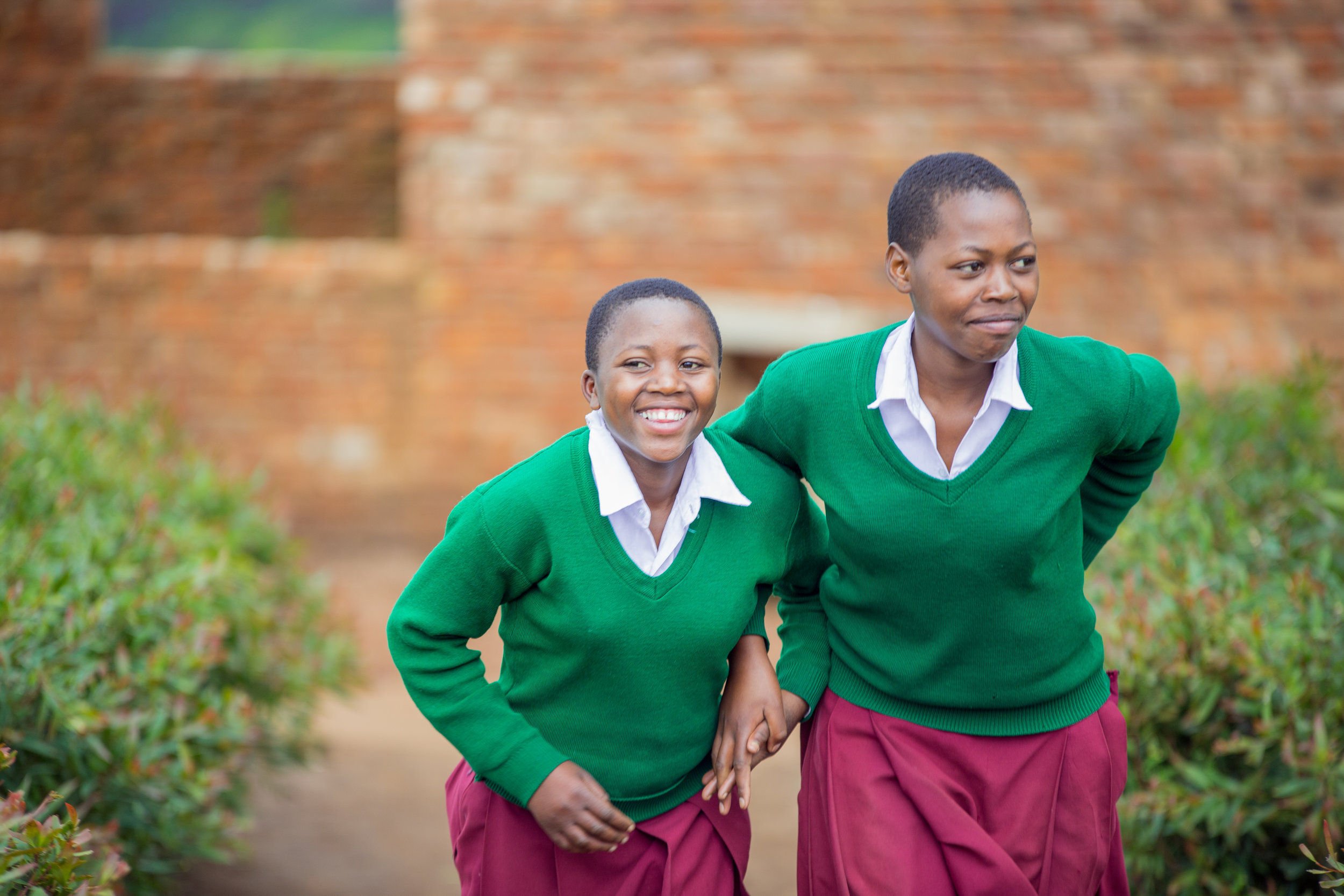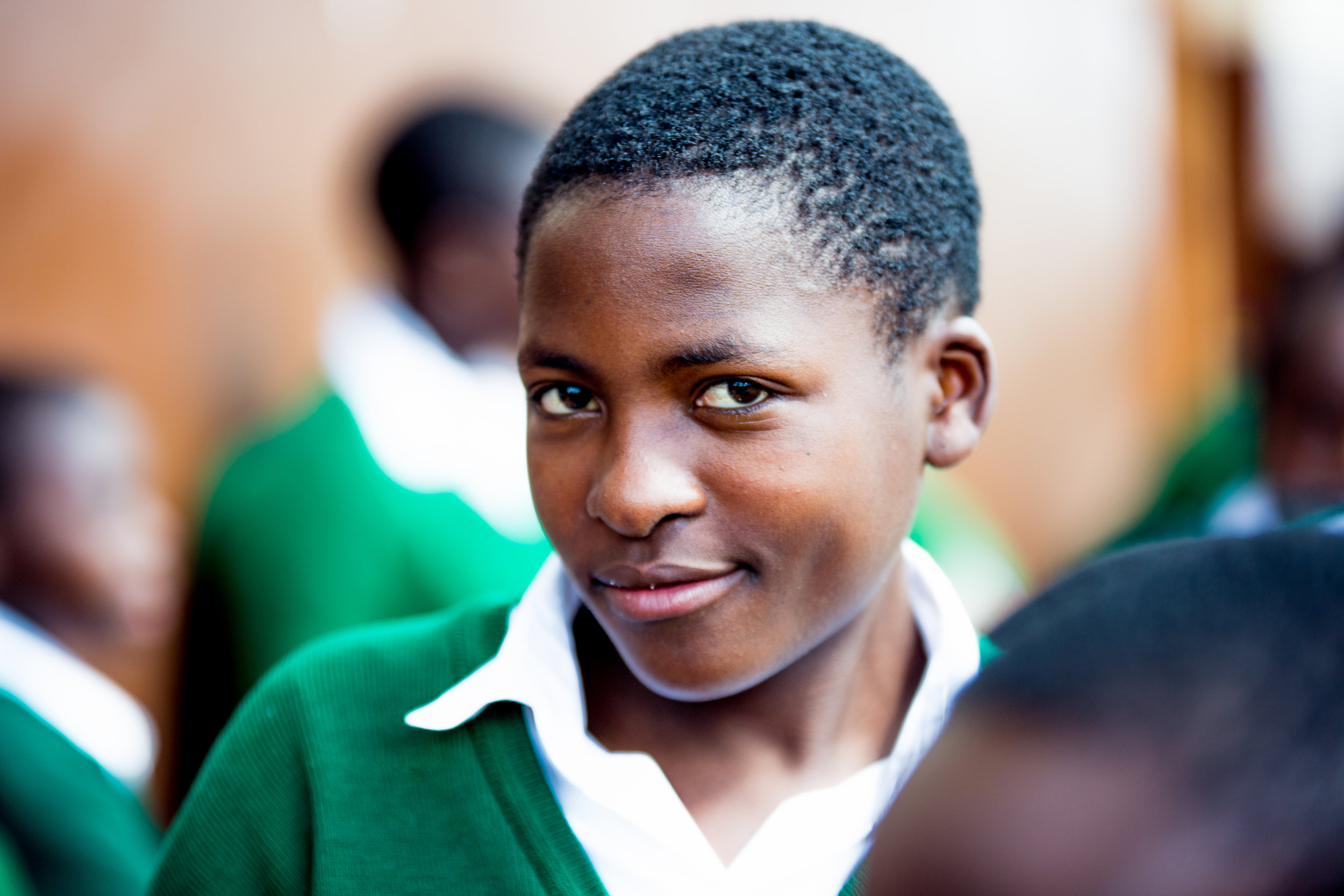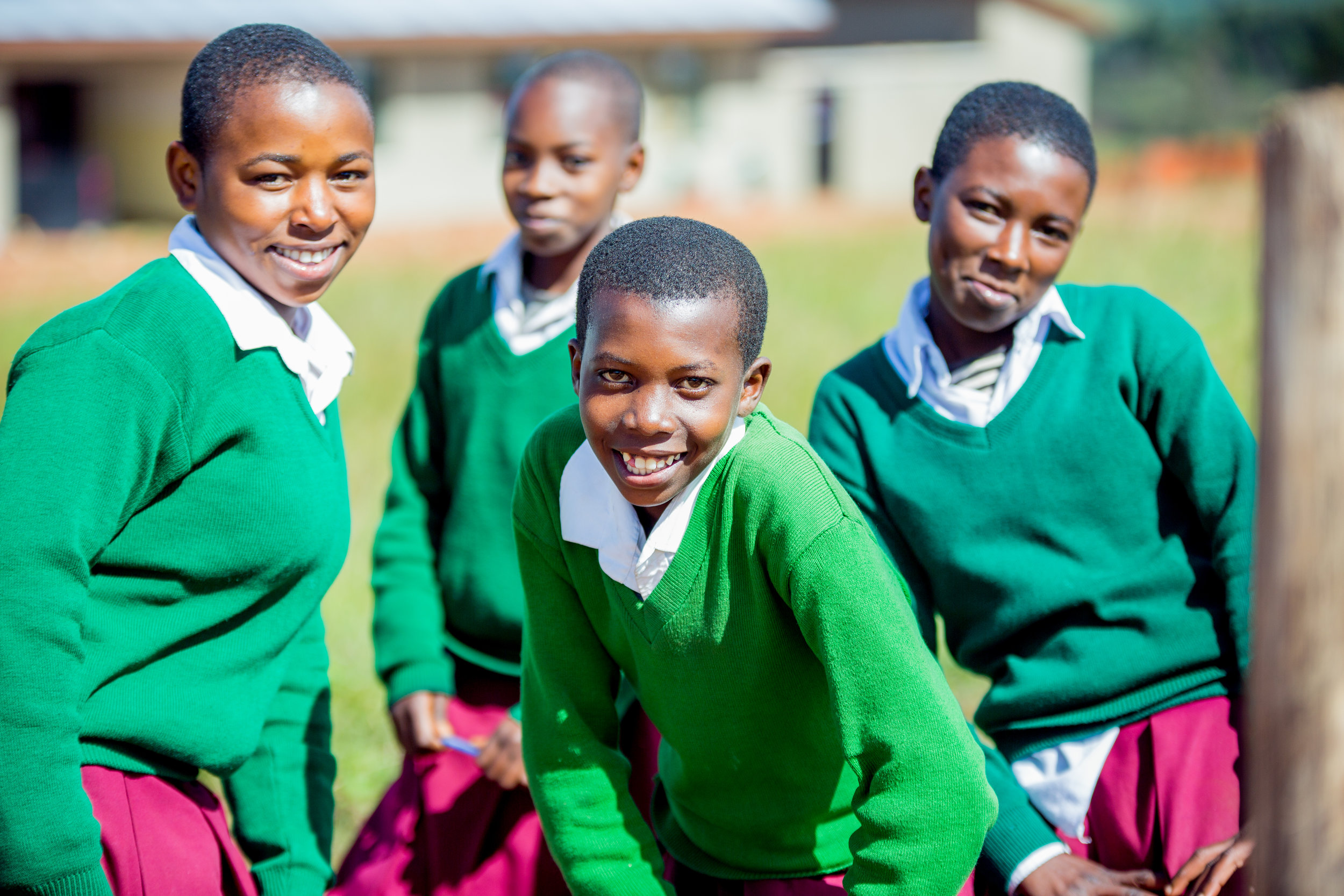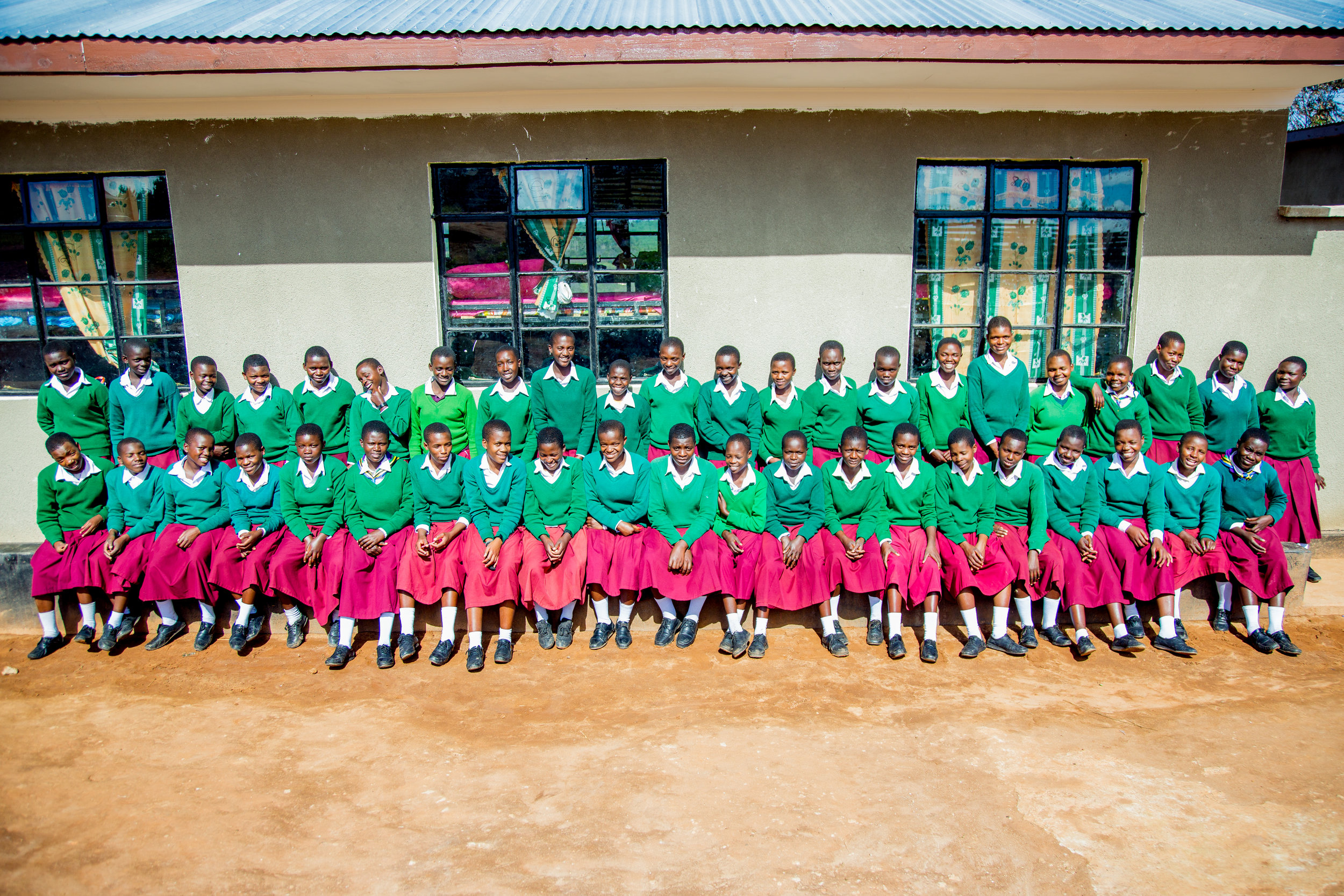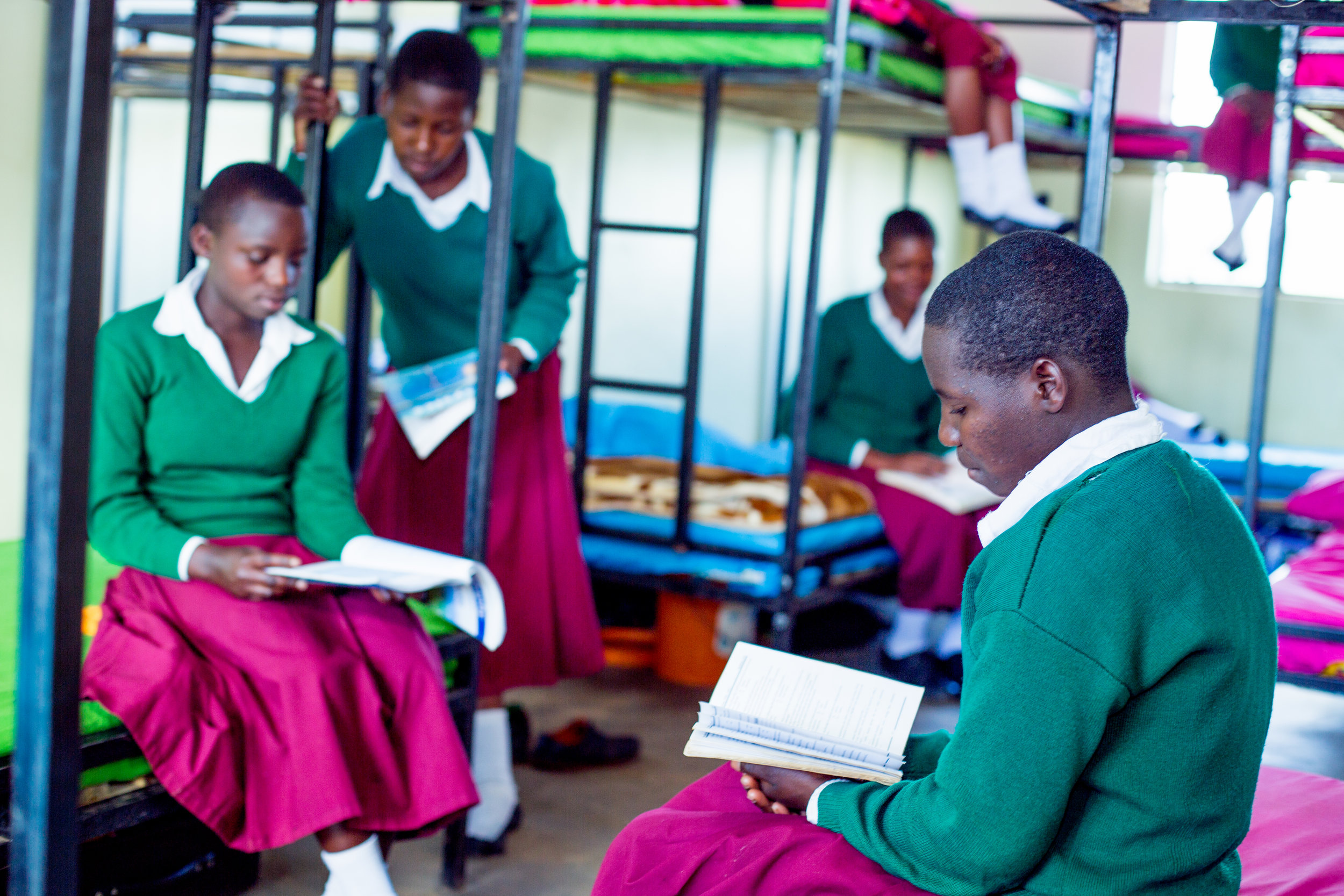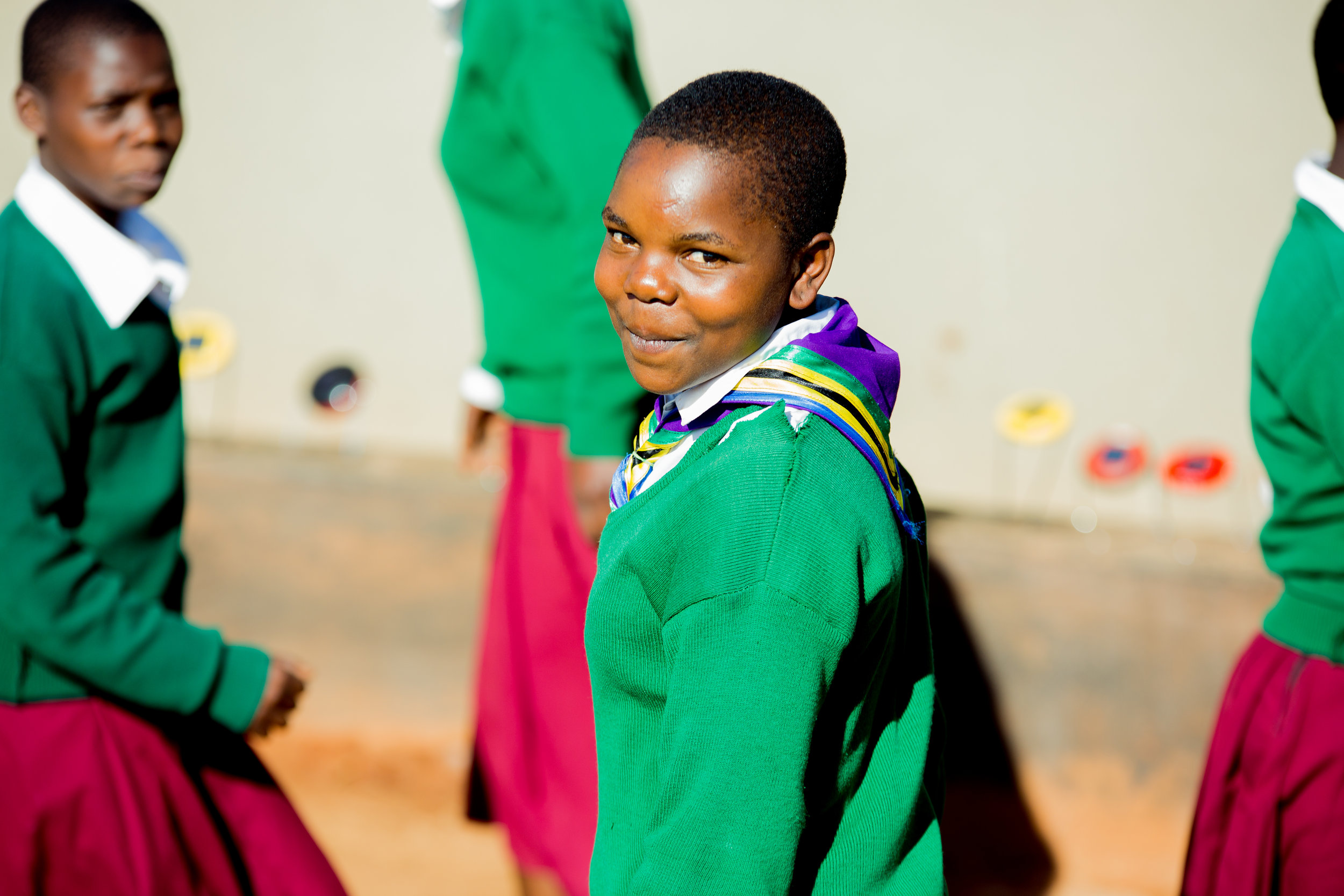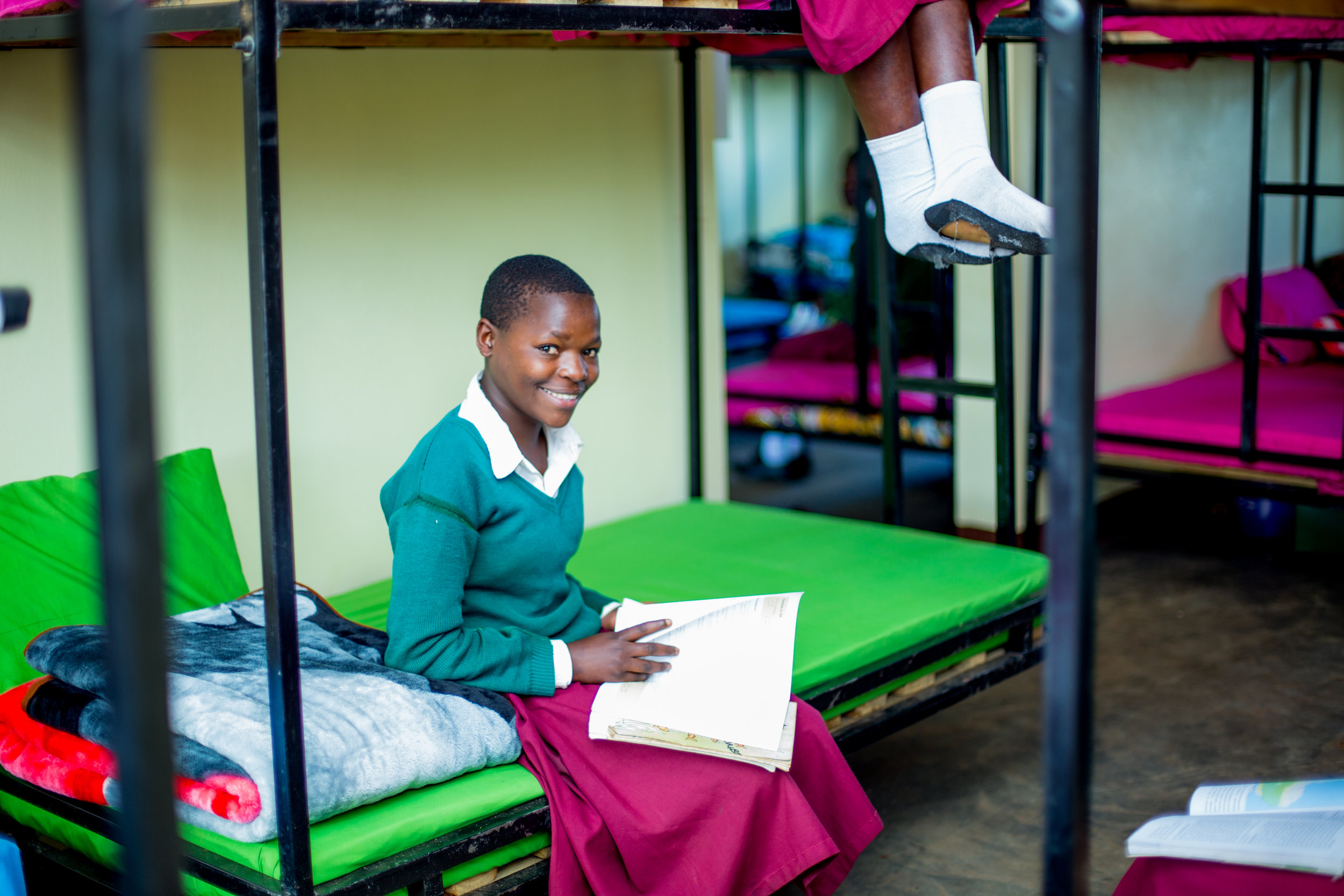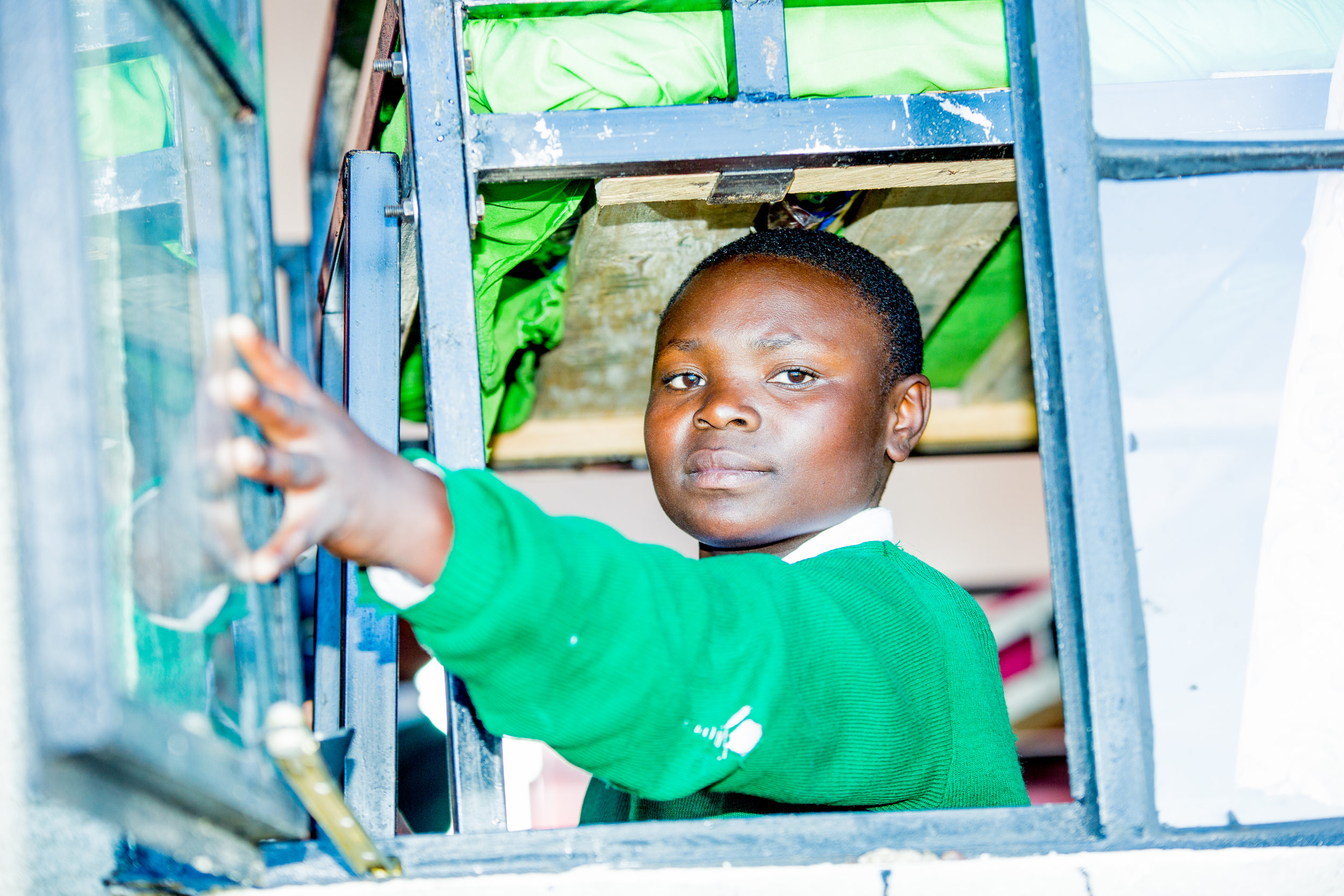The opening of the new hostel at Lulanzi Secondary School is already transforming the lives of the girls who live there. Seventy-two girls have moved in and more are expected.
School hostel places are a dream come true for poor girl students. Before moving into the hostel, many of the Lulanzi girls had to wake before dawn to do domestic chores before walking many kilometres to school, often without eating, and knowing that bad things could happen to them on the way – young girls are constantly vulnerable to men who want to force, bribe or entice them into sexual relationships.
As 15-year-old Roseneth says, “It is unbelievable to have such a nice hostel in our school which is incomparable with any houses in the village! To me the hostel is like a home for the homeless girls who used to walk, rent and those who were suffering in gaining their education.”
The hostel, deep in rural southern Tanzania, about 20 kilometres outside Iringa, has been built by the Lulanzi community with financial support from Lyra and the Michael Matthews Foundation.
Students say that their lives in their villages made it almost impossible to study at home. Roseneth, who lives with her grandmother, used to have to get up at 5am to do the “cooking, fetching water, collecting firewood, preparing food for seven people” before walking 10 kilometres to schools through “rain, cloud and strong winds early in the morning with an empty stomach.” With hindsight, she doesn’t know how she did it.
Sixteen-year-old Jenipha used to think her father was refusing to buy the lamp kerosene she needed in order to study at night, until she realised he couldn’t even afford salt for cooking. And sometimes, she says, “we run out of food at home, especially between January and May.”
Food shortages are endemic in the area and girls often go without food, so covering the costs of the three regular meals a day that the hostel provides proved out of reach for many families. Now, though, the hostel has managed to lower fees from $214 to $166 a year, by juggling costs, purchasing food in bulk and planting three acres of maize.
Students are deeply grateful to the parents and other relatives who have scraped together money to pay their fees. “I thank my grandma and my uncle for supporting my education, I thank them for their encouragement and guidance,” says Shani, 17. “I will always remember them in my life and the best way to remember them is to perform well in my upcoming exams.”
Moving into the hostel has given her a completely different life, she says, “with lots of time to review my class lessons, no more walking, and three meals a day.”
Students say they are enjoying the supportive atmosphere, and working hard towards fulfilling their dreams of becoming teachers, nurses and journalists.
Completing secondary education will also mean they are likely to have smaller, more manageable families in the future, and be able give back to their communities.
The girls say their hostel friends encourage them when they struggle and that they, in turn, support their friends.
“I love to help and advise others,” says Jenipha. “In my school I helped my friend who’s an orphan who wanted to drop out of school because he failed to get money to buy some school requirements. I gave him some money, exercise books and pens. He still at the school and he’s doing very well in class.”
“God bless the people who implemented the project,” says Roseneth.


